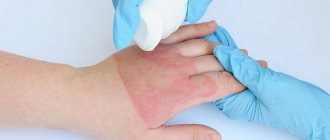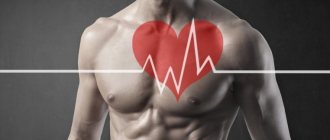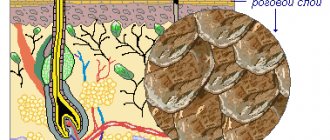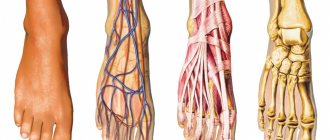Hygiene is a very broad concept that includes almost all aspects of human life. This science is aimed at preserving and improving health and life. Hygiene includes a number of rules that a person must follow at home, at work, and in public places. Next, the features of personal hygiene will be considered.
Body hygiene
The skin performs a protective function for the body. Keeping the skin clean is very important, since it is entrusted with certain functions: thermoregulatory, receptor, metabolic, respiratory, immune.
Rules:
- Wash your face every day under warm water. Water temperature is 36-37 degrees. In 7 days, human skin secretes 6 liters of sweat and 250 g of sebum. To prevent skin functions from being impaired, such secretions must be washed off daily. The skin is an ideal environment for the proliferation of pathogenic bacteria, fungi and other infections. Soaps and bath and shower products can be purchased at our pharmacy;
- Wash with a washcloth at least once a week;
- Keep hands and nails clean. A person takes food with his hands, along with which harmful microorganisms can enter the body. After using the toilet, going outside, or contacting animals, you must wash your hands. When outdoors, you can wipe your hands with wet wipes, which eliminate some of the bacteria;
- Wash your feet daily under warm water and soap;
- After taking a bath or shower, you should use deodorant;
- Don't forget to shave your armpits. Hair in this area of the body serves as a favorable environment for the growth of bacteria, and it also provokes the appearance of an unpleasant odor.
How to get rid of sloppiness and untidiness
“I’m ashamed to admit, but I’m a slob and a lazy person. No, I can be neat and maintain order when other people are around. But as soon as I'm left alone, I forget about everything. I’ll be home sick for a week and won’t brush my teeth even once. Unless the doctor arrives. When my husband is on a business trip, I litter the apartment and may not take a shower for 2-3 days. How to get rid of sloppiness and learn to take care of yourself for your own sake?
— Tamara, 27 years old
1st step. If a slob is your loved one
If you want to become more tidy yourself, you can move on to the second stage. If a dirty and slob is a husband or wife, then first it is important to convey to him the need for such changes. This is not always possible - there are particularly stubborn individuals who consider hygiene an unworthy and indecent activity. In other cases, you can try. To make the conversation seem like an attempt to negotiate, and not an attack, try following these rules:
- Choose a good time to talk. You should not start when you are both tired, irritated, hungry or sleepy.
- Frame your complaint as a request, not as a reproach.
- Avoid generalizations like “never” and “always.” It is unlikely that the phrase “you never brush your teeth in the morning” will be true.
- Use “I messages” (I wish I did, I think I feel this way).
- Start with the main thing, speak directly, not in hints. Clearly formulate the result you want to get.
- Remember that you are allies, not adversaries. You are a family and work together, not against each other.
For example, a request might look like this: “You know that I am very sensitive to smells. Sometimes, when you don't have time to take a shower, you start to smell not very nice. Of course, I love you anyway, but I would like you to smell nice. This makes me want to hug you more often.”
You may need more than one conversation and patience. But if your partner is willing to negotiate, sooner or later you will achieve success.
2nd step. Rule out diseases
As we said, some diseases can cause a loss of strength and a reluctance to take care of oneself. People who suffer from such diseases often do not admit it even to themselves. But until a person cures, for example, depression, all attempts to learn new habits and become neater will fail.
3rd step. Set yourself up for action, not regret.
Focus on actions rather than emotions or reasons for your inability. Guilt and shame are bad helpers. They will hinder you more than help you. Therefore, first of all, learn to be calm about the fact that you do not yet know how to be neat. The key word is yet. You don’t know how yet, but you can learn. It is better to focus on actions - such tactics are more effective than constantly regretting what was not done. [3]
4th step. Identify the skills you need
What exactly do you need to consider yourself clean? For example, brush your teeth twice every day, change your socks every day, and wash the dishes immediately after eating. Remember that personal hygiene standards can vary greatly from person to person, so consider your requirements carefully. Is this really a necessity? Or are you striving for this under the pressure of society and stereotypes? The basis can be taken as cleanliness and the absence of an unpleasant odor. For example:
- hair should be clean and combed, but its length is my choice;
- nails should be neatly trimmed and free of dirt, everything else is my choice;
- the body should be clean, but the physique has nothing to do with neatness;
- My breath should smell good, my teeth should be brushed, but I don't have to flash a Hollywood smile.
“Since childhood, I have been drawn to some unattainable heights. Mom proudly told how grandfather forced them to sweep their dirt path. Moreover, it was necessary to sweep so that grains of sand could not be felt with your bare feet. We already lived in an apartment, we didn’t have an earthen path, but the bar was raised to unattainable heights. I was never neat and clean enough. And until I was 30, I tried to follow my mother’s instructions. And then I realized that it wasn’t me who needed it. I feel good even if there is a jacket hanging on the back of the chair. It's okay for me if hairs come out of my hair. And if children play with paint directly with their hands, that makes me feel good too. It took me a long time to learn not to blame myself for not having perfect order, but now I feel like I’m breathing freely. And it didn’t become covered in dirt, as my mother prophesied for me.”
— Svetlana, 37 years old
5th step. Organize your space
Make sure you have everything in place to follow your new habits. Are there pastes, brushes, shampoos, washcloths and shower gels? Do you like them? Is there a basket for dirty laundry? Convenient brushes and rags, detergents for cleaning the house? Is it easy to hang clean clothes in the closet? Even little things like bad tasting toothpaste or a dirty bathroom can hinder your progress.
6th step. Prepare for downturns
In the process of learning personal hygiene skills, there may be setbacks and failures - this point is also worth taking into account. [4] Don’t reproach or scold yourself; temporary setbacks are natural. Don’t assume that if it doesn’t work out the first time, then you don’t even have to try. When you were learning to walk, you tried many times, fell, but kept trying. You should treat mastering any skill or ability in the same way. And it’s better not to take on more than 2-3 simple skills at once, or more than 1 if the skill is complex.
7th step. Add a little game
If following your plan is difficult, try incorporating an element of play. We respond very well to numerical display of progress - use it. For example, mark the days of new socks on the calendar, throw 1 coin into the jar for each brushing of your teeth, and so on. Choose something that will stimulate you. Promise yourself a reward for completing a goal, for example, buy yourself a new dress or a new monitor if more than 25 days are filled in on the calendar.
Hair hygiene
The scalp and hair also need special care. With proper care, the production of sebaceous glands is stabilized, blood flow and metabolic processes are improved.
Rules:
- Wash your hair whenever it gets dirty. It is impossible to determine the exact number of procedures. It depends on the type of hair, its length and structure. Seasonality may also influence. As a rule, in winter, hair gets dirty faster due to a hat that does not allow air to pass through, therefore, it is washed more often;
- You need to wash your hair with warm water. Hot water has a negative impact on their condition. This can cause your hair to become oily faster. Also, when exposed to hot water, shampoo settles tightly on the hair and is difficult to wash out;
- carefully choose shampoos, conditioners, masks and other hair care products. They must match your hair type. You also need to pay attention to the composition of these products;
- After washing, wipe your hair with a warm towel and leave it to dry naturally. It is necessary to limit the use of a hair dryer, since hot air dries the hair very much;
- You only need to comb your hair with your own comb.
Do not dry
Avoid drying out your skin. The use of aggressive soap leads to disruption of its protective fat layer, which makes the skin dry and can cause peeling and cracking. In addition, dry skin is less elastic - it can stretch greatly without restoring its shape later. As a result, deep wrinkles form. Frequent use of alcohol-containing products also leads to excessive drying of the skin. After all, alcohol absorbs water very well - and not only from the air, but also from the skin. In addition, washing with very hot water
. It irritates the skin, actually causing a slight burn, and also dissolves and washes away more sebum.
Oral hygiene
To keep your teeth healthy and beautiful, you need to ensure proper oral care. This will prevent the development of various diseases.
Rules:
- brush your teeth 2 times a day – in the morning and before bed. This must be done for at least 3 minutes. Don't forget to clean your tongue and the insides of your cheeks. Throughout the day, you can use dental floss, which removes food debris stuck between the teeth;
- You can’t brush your teeth with someone else’s brush;
- after eating you need to rinse your mouth;
- If you experience discomfort or pain in your gums or teeth, you should immediately consult a doctor;
- For preventative purposes, visit the dentist twice a year.
The most important
Clean skin is not sterile - it is home to millions of beneficial bacteria that help it function properly.
Excessive use of antibacterial soap upsets the balance of beneficial microflora. And aggressive detergents dry out the skin and lead to premature aging. Therefore, you need to wash twice a day, but without trying to wash off absolutely everything from her. Tags:
- Appearance
- Hygiene
- Leather
To leave a comment you must be an authorized user
Clothing hygiene
A special place in matters of personal hygiene is given to the cleanliness of clothes, shoes and underwear. Clothing also performs certain functions. The most important thing is protection from contamination and damage.
Rules:
- after taking a bath or shower, you need to change your underwear, that is, you need to do this every day;
- tights, socks, stockings also need to be changed every day;
- You cannot walk in someone else’s shoes, clothes and underwear;
- It is best to buy things from natural materials. Artificial materials do not allow the skin to breathe and can cause allergic reactions;
- When choosing clothes and shoes, take into account the features of human anatomy and size.
Bed hygiene
Rules:
- each family member must have their own towel and bed linen;
- change bed linen once a week;
- the sleeping place should be comfortable;
- before going to bed, you need to ventilate the room for 15-20 minutes;
- when going to bed, you need to change your underwear to pajamas or a nightie;
- It is better not to let pets into your bed.
What to do if you don't have soap and clean water?
Washing your hands with soap and water is the best way to get rid of germs. If soap and water are not available, use an alcohol-based hand sanitizer that contains at least 60% alcohol (the percentage is usually listed on the product label).
Alcohol-based hand sanitizers can quickly reduce the number of germs on your hands in some situations, but they do not get rid of all types of germs. Hand sanitizers may not be as effective when hands are visibly dirty or oily. Additionally, they may not remove harmful chemicals such as pesticides and heavy metals. Be careful when using these products on children: ingestion may cause alcohol poisoning if the child ingests more than a couple of sips.











